I have a feeling I’m preaching to the choir when writing an article for Pulse Beat Fit on nuts and seeds and why they’re good for you. The trouble is, many people, actually the majority of Americas, don’t eat them. In fact, only one-third report eating nuts on any given day.
I have a feeling I’m preaching to the choir when writing an article for Pulse Beat Fit on nuts and seeds and why they’re good for you. The trouble is, many people, actually the majority of Americas, don’t eat them. In fact, only one-third report eating nuts on any given day.
The reason? “They’re full of fat,” “I’ll gain weight,” or “they’re too expensive.” The truth is, a serving of seeds or nuts costs eighty-five cents on average and is worth every penny when you consider the potential health benefits. Research continues to show that nuts and seeds are good for our hearts, in addition to a plethora of other benefits ranging from cognitive function to managing blood sugars.
While you might not fall into the two-thirds requiring enlightenment, chances are you’ve got your go-to seed or are in a nut-rut. So the next time you’re in the store, include these healthy sources of fat and protein are on your list and make sure you try something new.
Almonds
Nutrition in a Nutshell: A serving of 23 kernels provides 163 calories, 6 grams of protein, 14 grams of fat (1 gram saturated), 6 grams of carbohydrates, and 4 grams of fiber.
Crack Open the Benefits: Compared to other most other tree nuts, almonds offer the most protein, fiber, calcium, vitamin E, and niacin. They are also one of the highest antioxidant nuts and preliminary research shows they may have a prebiotic effect to help support the gastrointestinal tract.
Need more reason to enjoy? You can actually enjoy more for less. A study conducted by the United States Department of Agriculture, which was published this month in the American Journal of Clinical Nutrition, found that almonds actually provide about twenty percent fewer calories than what currently appears on the Nutrition Facts Panel.1
Researchers used a more precise method, which allowed them to determine the number of calories actually digested and absorbed from almonds versus traditional methods of basic calculation. Results showed a serving actually has 129 calories versus the 163 calories as currently thought.
Cashews
Nutrition in a Nutshell: A serving of 18 kernels provides 164 calories, 5 grams of protein, 14 grams of fat (2 grams saturated) 8 grams of carbohydrates, and 1 gram of fiber.
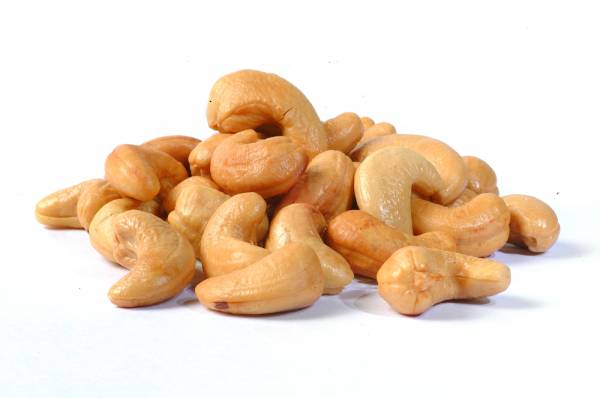
Crack Open the Benefits: Commonly overlooked by almonds and walnuts, cashews are actually a nutritional powerhouse, providing more iron, magnesium, phosphorus, zinc, copper, selenium, and vitamin K than any other tree nut.
Chia Seeds
Nutrition in a Nutshell: A one-ounce serving provides 138 calories with 5 grams of protein, 9 grams of fat (1 gram saturated), 12 grams of carbohydrates, and a whopping 10 grams of fiber.
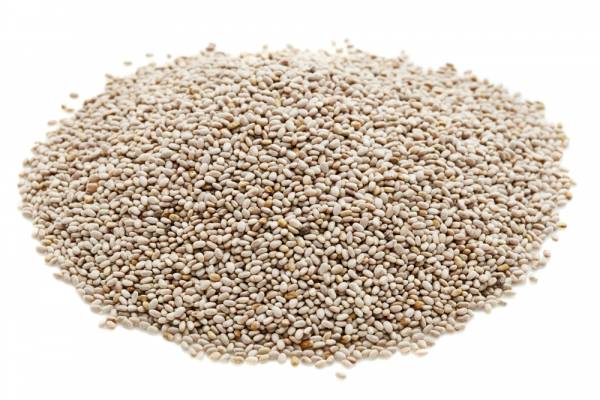
Crack Open the Benefits: The new “it” seed (and not for its tacky gift-giving potential), Chia seeds are now in the spotlight for their nutritional offerings. Similar to walnuts and flaxseeds, chia seeds are an excellent source of alpha-linolenic acid. And unlike flax seeds, chia seeds do not have to be ground to benefit from any of the nutrients; they can be consumed in their whole form.
Pecans
Nutrition in a Nutshell: A serving of pecans is 19 halves, which provides 196 calories, 3 grams of protein, 20 grams of fat (2 grams of saturated), 4 grams of carbohydrates, and 3 grams of fiber.
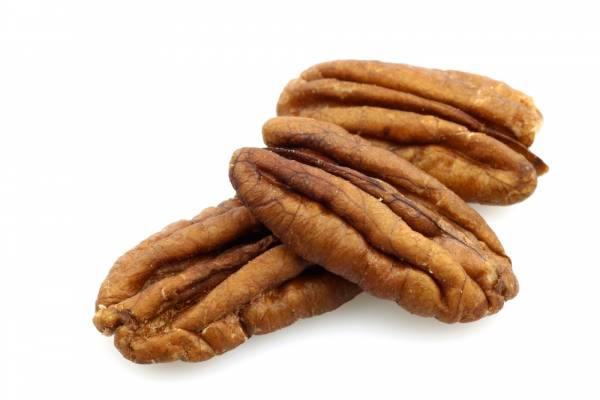
Crack Open the Benefits: Although higher in calories and lower in protein and fiber, compared to most other nuts, pecans are an excellent source of manganese and are a good source of copper and antioxidants too. Similar to other tree nuts, studies have shown a significant improvement in cardiovascular lipid profiles in individuals who include pecans in their diets.
Pumpkin Seeds
Nutrition in a Nutshell: A one-ounce serving of pepitas, or pumpkin seeds provides 158 calories, 9 grams of protein, 14 grams of fat, 3 grams of carbohydrates, and one gram of fiber.
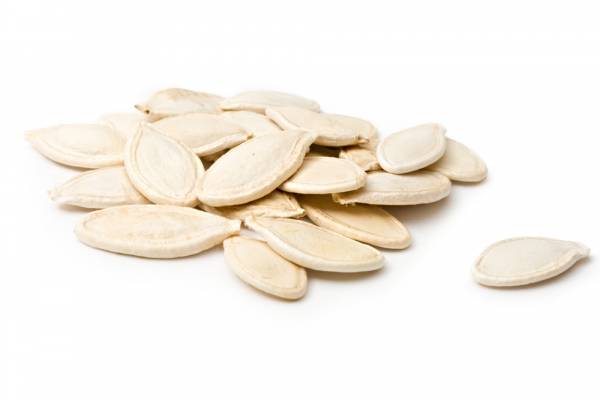
Crack Open the Benefits: Not all things on Halloween have to be unhealthy. Pepitas are an excellent source of manganese, magnesium, phosphorus, copper, and protein. And the good news is, you can actually enjoy them year-round.
Pistachios
Nutrition in a Nutshell: Forty-nine pistachios offers up 161 calories, 6 grams of protein, 13 grams of fat (1.5 gram saturated), 8 grams of carbohydrates, and 3 grams of fiber.
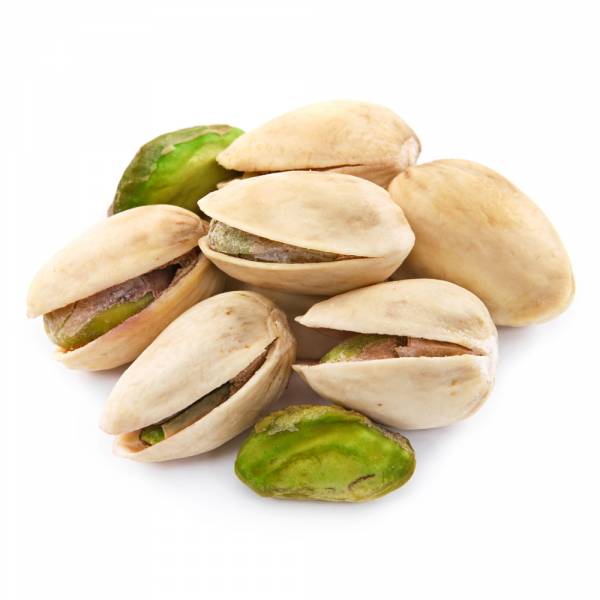
Crack Open the Benefits: Pistachios are unique from other nuts in that they provide two nutrients called lutein and zeaxanthin, which are associated with reducing the risk of age-related macular degeneration (eye disease). They’re also a natural “speed bump” food; the shell helps to slow you down which has been shown to cut calories by 40%.
Sesame Seeds
Nutrition in a Nutshell: A one-ounce serving provides 162 calories, 5 grams of protein, 14 grams of fat (2 grams saturated), 6 grams of carbohydrates, and 3 grams of fiber.
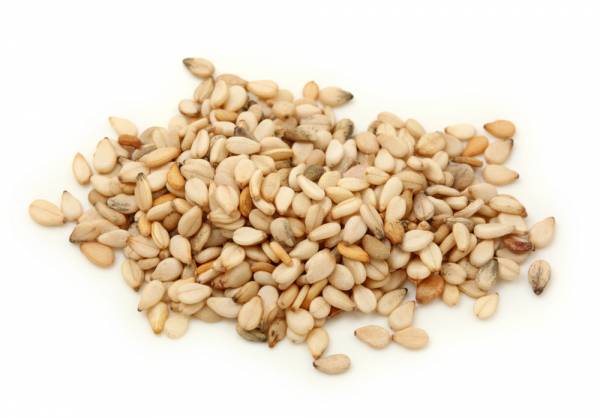
Crack Open the Benefits: These seeds come out big on manganese and copper and also offer up calcium and iron.
Walnuts
Nutrition in Nutshell: A handful of 14 walnut halves provides 185 calories, 4 grams of protein, 18 grams of fat (2 grams saturated), 4 grams of protein, and 2 grams of fiber.
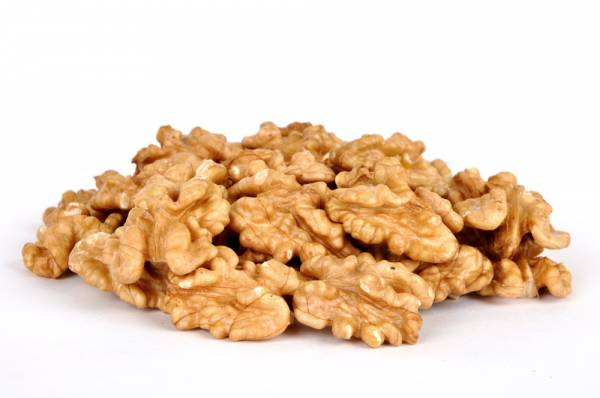
Crack Open the Benefits: We’re aware of the research on walnuts being good for our hearts and our brains but could men be receiving a little added boost? Recently published research found that men who included about 2.5 ounces of walnuts in their daily diet for three months saw an improvement in the “vitality, motility and morphology” of their sperm.2
Photos courtesy of Shutterstock.






